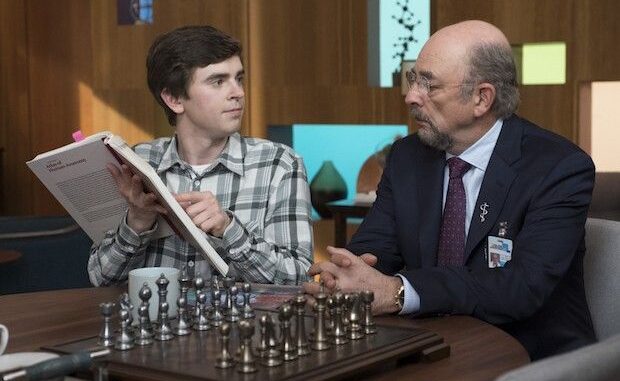
After seven emotional and thought-provoking seasons, The Good Doctor has officially concluded its run. ABC confirmed that Season 8 will not be happening, marking the end of a series that has touched millions with its unique blend of medical drama, personal growth, and compassionate storytelling. The news hit fans hard, especially those who’ve followed Dr. Shaun Murphy’s journey from his very first day at San Jose St. Bonaventure Hospital. But while the cancellation might feel sudden, the reasoning behind it reflects both industry realities and creative decisions.
When The Good Doctor premiered in 2017, it brought something new to the primetime television landscape. Centered around Dr. Shaun Murphy — a young surgeon with autism and savant syndrome, portrayed by Freddie Highmore — the show explored what it means to be different in a world that often demands conformity. Shaun’s brilliance in the operating room and struggles in social situations made for powerful storytelling, and the show quickly built a loyal fanbase. Through the years, audiences watched Shaun grow into a confident, skilled doctor, navigate friendships, fall in love, and even start a family. The series didn’t just entertain — it sparked conversations about neurodivergence, inclusion, and emotional intelligence in the workplace.
While some cancellations stem from plummeting ratings or network shakeups, the decision to end The Good Doctor was largely a creative one, made with careful thought by the producers and ABC. Here are the primary factors that influenced the show’s conclusion:
1. Natural Story Arc Conclusion
After seven seasons, the show had successfully completed many of its central character arcs. Shaun had evolved from a socially awkward surgical resident into a respected surgeon, husband, and father. His journey had come full circle. Rather than stretching the storyline and risking dilution, the creators opted to give the series a proper ending.
2. Cost vs. Ratings
Although the show maintained a solid fanbase, the ratings had seen a gradual decline in recent seasons — a common trend for long-running network dramas. At the same time, production costs had risen. Large ensemble casts, detailed medical sets, and technical consultants made the show expensive to produce. ABC likely weighed the cost-benefit analysis and determined that seven strong seasons were enough.
3. Changing Television Landscape
As streaming continues to dominate and network television shifts its focus to shorter seasons and newer concepts, even established shows are facing early exits. The Good Doctor survived longer than most in today’s climate, a testament to its quality and impact.
Fortunately for fans, the creators were given enough time to plan a proper conclusion. Season 7 gave closure to many key storylines, including:
-
Shaun and Lea settling into married life and parenthood.
-
Dr. Glassman’s emotional journey as his health declined and his relationship with Shaun evolved.
-
Dr. Andrews, Jordan, Asher, and other characters confronting career and identity challenges in and out of the hospital.
The series finale was both touching and satisfying. Shaun, now more emotionally mature, performed a critical surgery while juggling his new role as a father. It was a moment that showcased just how far he’d come — not just as a doctor, but as a person. The last scenes weren’t overly dramatic or tragic; instead, they offered a message of hope and healing, perfectly aligned with the show’s core values.
Beyond the characters and medical cases, The Good Doctor will be remembered for its groundbreaking representation. It brought a neurodivergent character into the spotlight without making him a caricature or sidekick. Freddie Highmore, who also served as an executive producer, portrayed Shaun with remarkable care and consistency — ensuring that the role never felt forced or disingenuous.
The show opened the door to a broader understanding of autism and helped normalize conversations about disability and mental health in everyday life. It showed that someone can be brilliant and flawed, awkward and heroic — all at once.
With the series ending, many fans are wondering what the future holds for the cast:
-
Freddie Highmore is expected to continue acting and producing, although no new projects have been confirmed just yet. After two major series (Bates Motel and The Good Doctor), he may take some well-earned time off.
-
Paige Spara (Lea) has received praise for her grounded performance and is likely to explore more roles in both film and television.
-
Richard Schiff (Glassman), a seasoned actor, remains in high demand and may return to more political or dramatic roles.
-
Will Yun Lee, Bria Samoné Henderson, and Noah Galvin have all built strong resumes and are likely to appear in other high-profile projects soon.
Saying goodbye to The Good Doctor isn’t easy. The show was more than just a medical drama — it was a heartfelt exploration of what it means to be human. Through seven seasons, it taught us about resilience, acceptance, and the power of empathy. It challenged stereotypes and pushed boundaries, all while delivering compelling stories that made us laugh, cry, and cheer.
While Season 8 won’t be happening, The Good Doctor ends with its legacy intact — and its message clearer than ever: greatness doesn’t require perfection, only heart.
